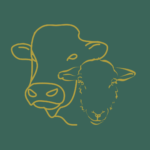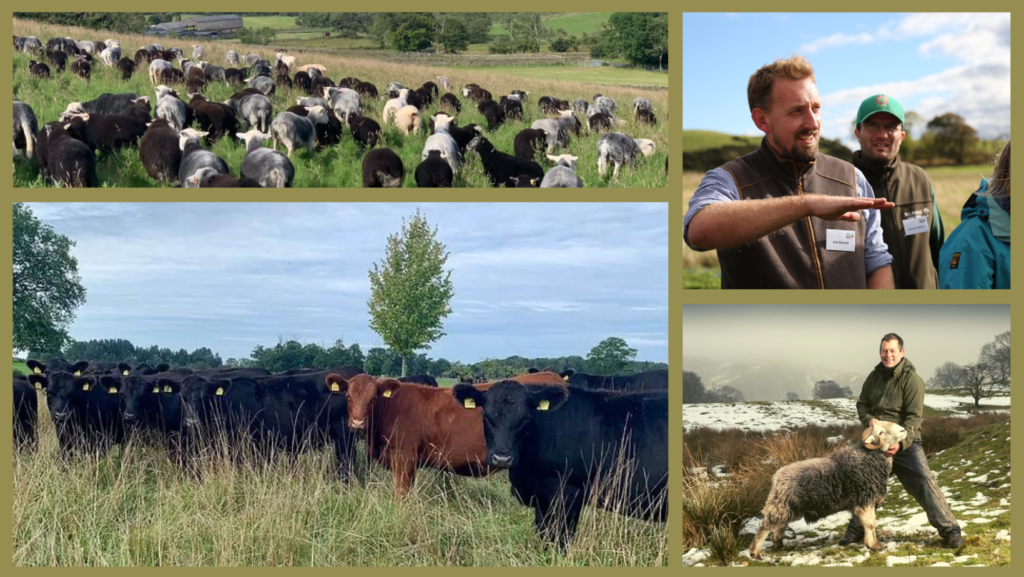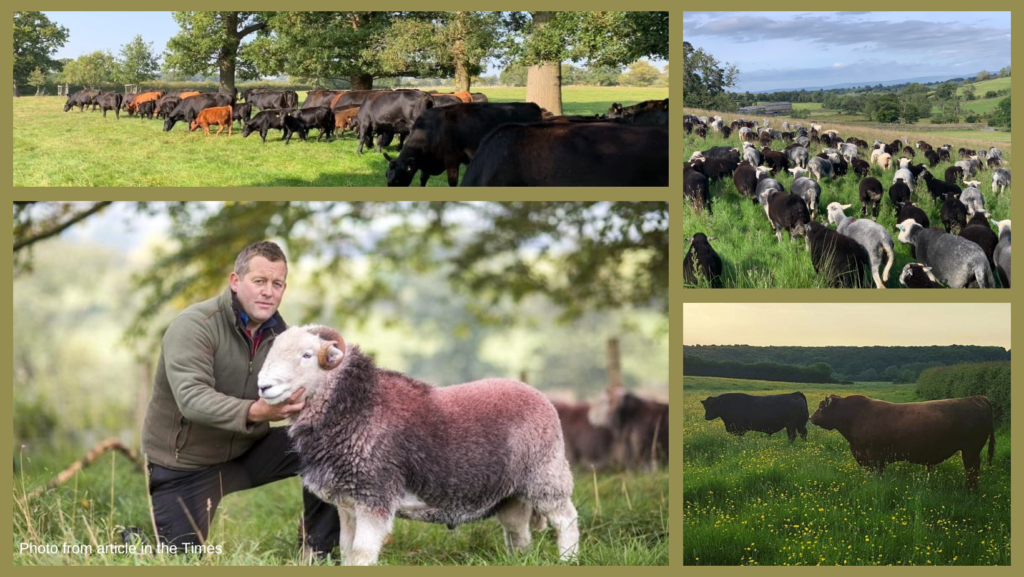
Grazing School presents;
Rob Havard from Phepson Angus and Lakeland hill farmer James Rebanks have teamed up to offer you:
GRAZING SCHOOL Genetics day
ABOUT YOUR HOSTS
Rob Havard Rob is a sixth-generation farmer and professional ecologist who owns Phepson Angus – a cattle genetics operation specialising in pedigree grass-fed organic Aberdeen Angus breeding cattle that maximise meat from grass with no fuss.
Rob uses Holistic Management to integrate planned grazing on the 1000+ acres of diverse pasture he grazes with his herds. His focus is on the marriage of productivity and ecological gain.
As a hands on farmer Rob speaks from experience, providing practical insight into how to regenerate landscapes whilst growing fitter cattle for less money to improve a farms profit per acre.
Rob is currently undertaking a Nuffield scholarship studying the ‘Evaluation of beef cattle selection methods for profitability in grass-fed production systems’.
James Rebanks, whose family have lived and worked in and around the Lake District for generations is a renowned Lakeland hill farmer and author of the highly acclaimed ‘English Pastoral’ and ‘The Shepherd’s Life’.
James is a dedicated shepherd and a bold advocate and practitioner in farming with nature. He is an acclaimed Herdwick sheep breeder and has a deep understanding of the importance of functional traits and of breeding animals that are fit for context.
James believes in the importance of blending traditional farming knowledge and skills with a scientific selection process to produce animals that not only win shows but underpin a profitable low-input farming system.

CONTENT
Regenerative grazing can help farmers reduce input costs and increase productivity – it offers a hopeful solution in challenging times.
Regenerative grazing is, however, a ‘whole system’ to management. It’s a step change in how we manage livestock and land that requires a transition period of adaptation. A bit like moving from a diesel car to an eclectic vehicle; you can’t simply change one part of the system and expect great results!
To create a truly optimal and profitable regenerative or grass-based system, we need livestock that can convert forage into meat or milk with little or no supplementary feed and minimal routine medicines.
This requires the right genetics.
Grazing school has created a ‘genetics’ day to help farmers develop a genetic selection strategy for their herd and flock that is optimal for their unique context.
YOU WILL LEARN
- How to select for fertility in your herd
- How to identify the hard-working cows that pay the bills
- How to use visual appraisal to select profitable cows/replacements
- Why epigenetics are important in selection in low input systems
- How to source the right seed stock for your system
- How to add value to a low-input system
- How to breed your way to lower costs
- Importance of Genetics in both grass and cows
- The importance of fertility
- What is a low input system? – Out-wintering
- Using cattle in habitat restoration and why low-input cattle are the future
- Suckler genetics vs terminal genetics

OTHER TOPICS COVERED
Principles of fertility and environmental fit
- What is a cows or sheep’s job?
- What’s our job to set her up?
- What have we done to cows to make them so bloody high maintenance?
Crutches/managing away from medicines
- What can cows do – cold etc.
- Breed vs type, big vs small (outdoor?)
- Challenge
- Epigenetics and adaptive fertility
- Physical attributes/structure for pasture only and out-wintering livestock (outdoor)
Selection methods –
- EBV’s vs stockmanship/visual appraisal (outdoor)
- Actual performance vs predicted performance
- Breeding for better vs culling for better
How to source the right seed stock Genetics vs breeding your herd towards a low input system
- Managing the transition to low input/fertile stock
- Maximum Sustainable stocking rate
Sales and Adding value
- Value added
Value lost? – Which livestock classes leak income?
PRACTICAL
For;
any livestock or land farmer who is interested in regenerative grazing, increasing productivity, profitability and resilience, and conservationists/ecologists seeking to learn about genetics for grazing management.
When;
23rd July 2025
Where;
Hosted by James and Helen Rebanks on their farm in the North East of the Lake District.
Cost;
£235 per person, for one day including a hearty Lakeland lunch.
Accommodation not included.
More information?
info@rootsofnature.co.uk